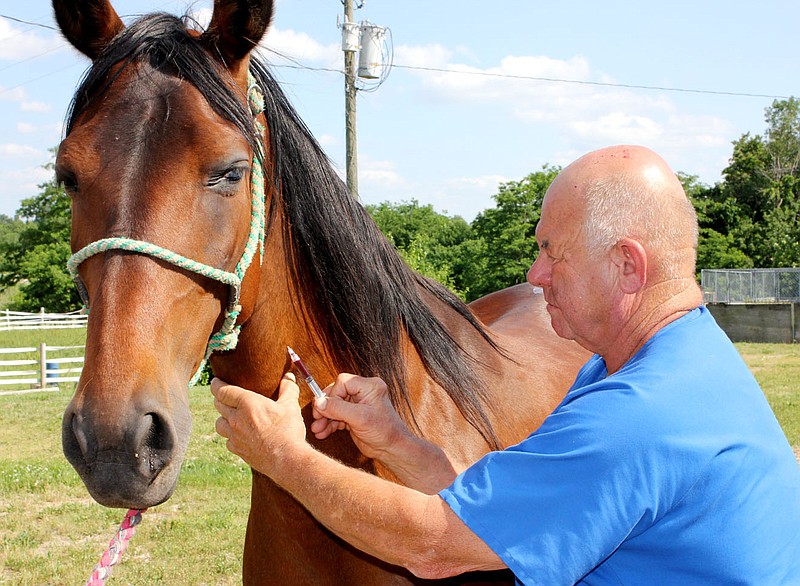A breakout of 12 cases of equine infectious anemia (EIA) in Nebraska has caused concern of Missouri owners of horses, mules and donkeys.
"This is the AIDS of the horse world. There is no known cure," said Dr. Robert Barnett, a Fulton veterinarian who raises mules and treats large animals.
Every year, Barnett insists on requiring all mules participating in the annual Fulton Street Fair to have a negative Coggins test performed on each participating animal. The Coggins test will detect the disease even if the animal has no symptoms yet.
"It is illegal in Missouri to sell a horse without a negative Coggins test," Barnett said.
In 2011 two Missouri horses in Pike County with EIA were found as part of the state's rules requiring a negative Coggins test for all horses changing ownership or exhibiting. Both horses in the herd were humanely euthanized at the request of the owner and under the recommendation of Dr. Taylor Woods, Missouri's state veterinarian.

